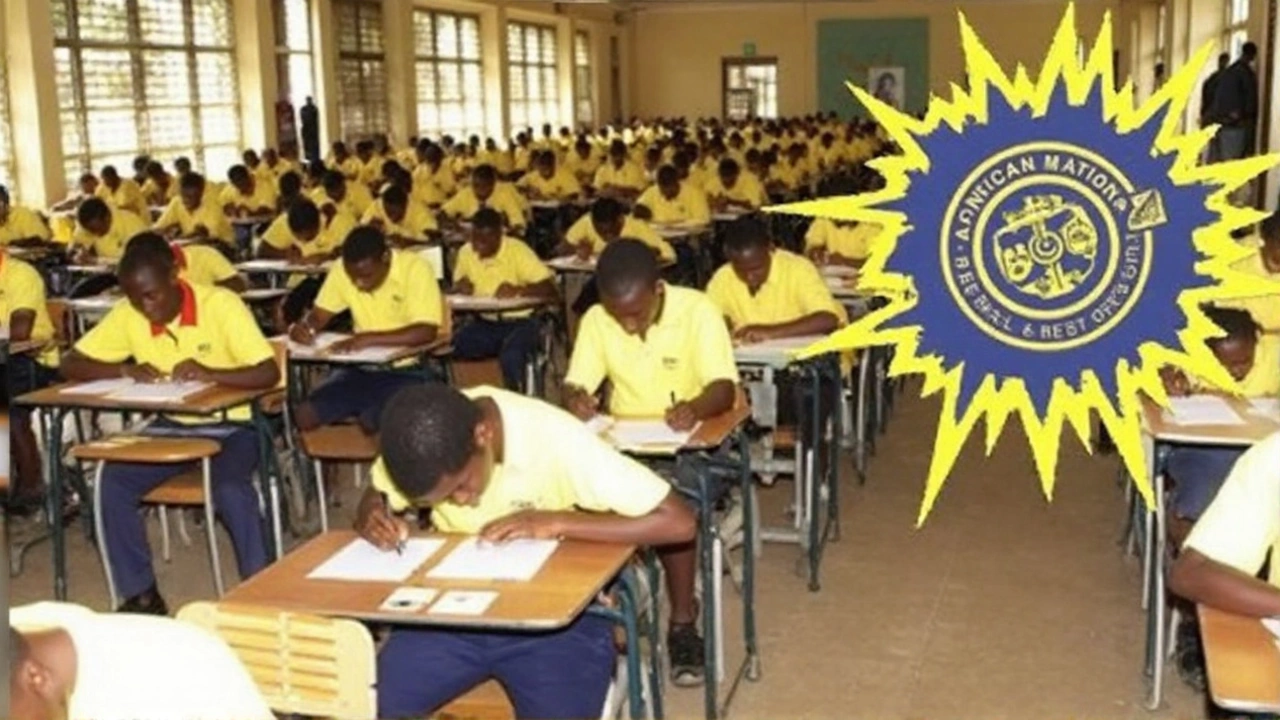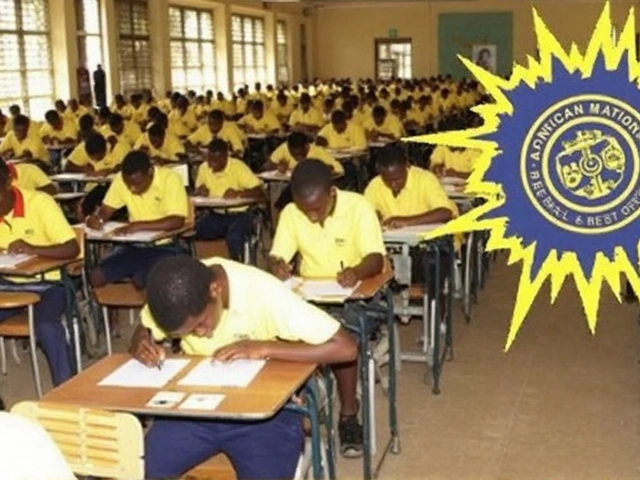Massive Decline in Pass Rate Upsets Education Stakeholders
You can almost feel the nerves through the numbers. WAEC just announced the 2025 WASSCE results and they're a wakeup call: only 38% of Nigerian candidates managed to clear the crucial five credits, including English and Mathematics. Let that sink in. Last year, it was a far healthier 72.12%. Suddenly, everyone—students, parents, teachers, and policymakers—has a problem to solve, fast.
Let’s put these numbers in perspective. Out of nearly two million who took the exam, only 754,545 met the minimum requirement for tertiary admission. That leaves a huge chunk of Nigerian youth—over a million—who now face derailed hopes for university. The WASSCE isn’t just any test; for Nigerian students, it’s the gateway to higher education and better opportunities. The sheer scale alone (over 1.6 million registered, almost two million sitting) tells you this is more than a statistic—it's a national issue.
Making things worse, it’s not just about grades. WAEC withheld 192,089 results because of suspected cheating. While every exam season brings a few such cases, the volume this year raises eyebrows. Clearly, there’s a deeper issue in the way exams are conducted, supervised, and perhaps even in the desperation students feel to succeed in a high-stakes environment.
Trends, Troubles, and Tensions: What’s Behind the Numbers?
The trouble doesn’t stop with the pass rates. Early data points to real gaps between regions and between the genders. Some zones seem to be struggling harder than others, though detailed state-by-state breakdowns haven’t been released yet. What’s sparking conversation is the reported trend that female students outperformed males in several subjects—a reversal of some past years, but more than anything, a sign of shifting dynamics in classrooms across the country.
Amos Dangut, WAEC’s head in Nigeria, didn’t dodge the bad news. He called it out in public, sharing the numbers and refusing to sugarcoat the situation. He talked about a "crisis of standards" and didn’t try to lay blame in one place. Instead, he sounded the alarm for teachers, parents, and government bodies to dig in and work together. There's been talk for years about reforming Nigeria’s education sector, but after these results, the voices are getting louder, more impatient.
The grumblings aren’t just about the classroom, either. Parents are angry—and scared. Social groups and NGOs say now is the time for hands-on change, like updating the curriculum, properly preparing teachers, and funneling real investment into public schools. There's talk about old-fashioned rote learning versus genuinely engaging students. The consensus? What’s been tried so far isn’t working.
One of the biggest headaches is for universities and colleges. With such a sharp drop in students who qualify for further studies, these institutions face a shrinking pool of applicants. That could mean empty seats, tougher competition for scholarships, and fewer bright spots in a youth population that’s supposed to be Nigeria’s future.
Everyone’s watching—and nobody can afford to ignore this. If education is the engine of a country, Nigeria’s just started sputtering. Something's got to give before next year’s results tell the same story again, only worse.


Chirag Kamra
August 12, 2025 AT 04:17bro this is wild. 38% pass rate? that's like flipping a coin and hoping it lands on heads... and even then half the coins are glued to the table. we gotta stop treating exams like a lottery and start fixing the damn system. teachers are overworked, kids are stressed, and no one's actually teaching how to think. it's all memorize, regurgitate, cry. 😭
RUPESH BUKE
August 13, 2025 AT 05:13The drop in pass rates is alarming but not unexpected if you look at the infrastructure gaps in rural schools. Resources are unevenly distributed and teacher training has stagnated for years
Vijay Paul
August 14, 2025 AT 07:22While the statistics are troubling, it is important to recognize that educational outcomes are deeply intertwined with socioeconomic factors. The disparity in access to quality learning materials cannot be ignored in any meaningful analysis.
Ramesh Velusamy
August 14, 2025 AT 16:43yall actin like this came outta nowhere. been seein this comin for years. schools ain't got books, teachers got 3 jobs, kids got no breakfast, and we still act shocked when they fail? fix the basics first. food, books, pay teachers. not more tests. more support. we ain't buildin future leaders we buildin exam machines
Chandni Solanki
August 16, 2025 AT 03:06I know so many girls who crushed this exam and their moms cried for hours. it's not just about grades, it's about proving they belong in spaces that never thought they could. hope this pushes people to invest in girls' education more than ever 💪❤️
Nitin Garg
August 17, 2025 AT 06:41So let me get this straight. We spend billions on exams but not on schools? The real scandal isn't the 62% failing-it's that we keep pretending this broken system works. Maybe if we stopped pretending to care about education and started caring about control, we'd see real change.
Seema Lahiri
August 18, 2025 AT 07:15I remember when I sat for my WAEC back in 2010 and the whole village showed up to cheer me on because someone passing meant something back then now it feels like everyone just hopes nobody notices their kid's name on the fail list the silence is louder than the results
Jay Patel
August 19, 2025 AT 12:03the real question is why we even care about a certificate. education is supposed to be about growth not just passing a test. we turned learning into a performance and now we're shocked the audience booed. maybe the stage was never meant to be this bright
fathimah az
August 21, 2025 AT 11:25The data suggests a systemic misalignment between pedagogical delivery and cognitive development benchmarks. The curriculum remains anchored in 20th-century paradigms while the global knowledge economy has evolved exponentially. A competency-based, adaptive learning framework may be necessary to recalibrate outcomes
Sohini Baliga
August 22, 2025 AT 04:44It is imperative that we approach this issue with compassion and a long term vision. Every student who did not pass is not a failure but a call to action for all stakeholders to unite and rebuild the foundation of learning
Senthil Kumar
August 22, 2025 AT 17:10The integrity of the examination process must be preserved, and efforts to ensure fairness and transparency should be strengthened. Collaboration between educational authorities and community leaders can help restore public confidence
Anu Baraya
August 23, 2025 AT 04:57We must not lose sight of the fact that behind every failed result is a child who deserves better. Let us channel our frustration into action and ensure that no student is left behind because of broken systems
Divyangana Singh
August 23, 2025 AT 23:41I think we've confused memorization with mastery. The real tragedy isn't that students failed-it's that we taught them that failing means they're worthless. What if we started measuring courage instead of correctness? What if we rewarded curiosity instead of conformity? Maybe then we'd see more than 38% shine
Harsh Vardhan pandey
August 25, 2025 AT 19:42another day another 'crisis' they always say crisis but never fix anything. same people same speeches same silence. just wait till next year when they drop the numbers again and pretend they're shocked
kriti trivedi
August 26, 2025 AT 11:00You know what's funny? The same people who scream about cheating are the ones who paid bribes for their kid's O'Level results. Hypocrisy is the national sport. We don't want reform-we want a better ticket to the same broken ride
shiv raj
August 27, 2025 AT 13:06hey everyone i know a guy who tutored 5 kids in his garage with free notebooks and old textbooks and all 5 passed this year. small things matter. we dont need a revolution just people who show up. if you can teach one kid today do it
vaibhav tomar
August 27, 2025 AT 18:34it hurts to see so many bright minds stuck because the system doesnt see them as more than numbers maybe its time we stopped asking why they failed and started asking what we failed to give them
Sushil Kallur
August 28, 2025 AT 09:44I come from a small town in Odisha where the school has no electricity, yet the students still sit under lanterns to study. I believe change begins with recognizing dignity, not just deficits.
Shatakshi Pathak
August 28, 2025 AT 16:03I just read this and I have to say I'm not surprised. My cousin's school in Kano didn't get new textbooks in 7 years. And you want to know the worst part? The teachers are the ones who got their salaries cut last month. So who's really to blame? The kids? Or the people who keep cutting the lifelines?